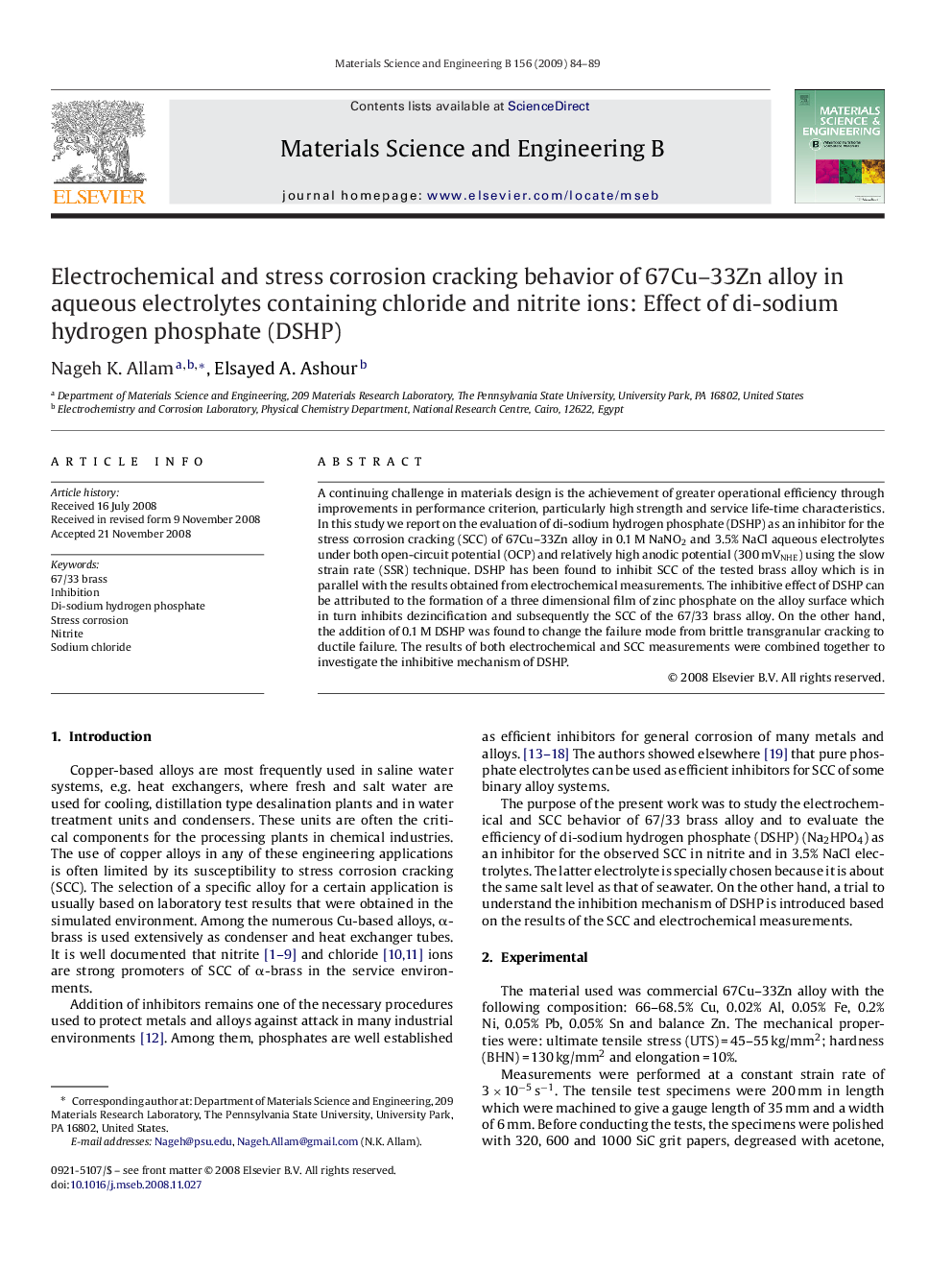| Article ID | Journal | Published Year | Pages | File Type |
|---|---|---|---|---|
| 1530947 | Materials Science and Engineering: B | 2009 | 6 Pages |
A continuing challenge in materials design is the achievement of greater operational efficiency through improvements in performance criterion, particularly high strength and service life-time characteristics. In this study we report on the evaluation of di-sodium hydrogen phosphate (DSHP) as an inhibitor for the stress corrosion cracking (SCC) of 67Cu–33Zn alloy in 0.1 M NaNO2 and 3.5% NaCl aqueous electrolytes under both open-circuit potential (OCP) and relatively high anodic potential (300 mVNHE) using the slow strain rate (SSR) technique. DSHP has been found to inhibit SCC of the tested brass alloy which is in parallel with the results obtained from electrochemical measurements. The inhibitive effect of DSHP can be attributed to the formation of a three dimensional film of zinc phosphate on the alloy surface which in turn inhibits dezincification and subsequently the SCC of the 67/33 brass alloy. On the other hand, the addition of 0.1 M DSHP was found to change the failure mode from brittle transgranular cracking to ductile failure. The results of both electrochemical and SCC measurements were combined together to investigate the inhibitive mechanism of DSHP.
